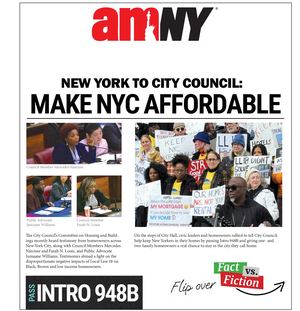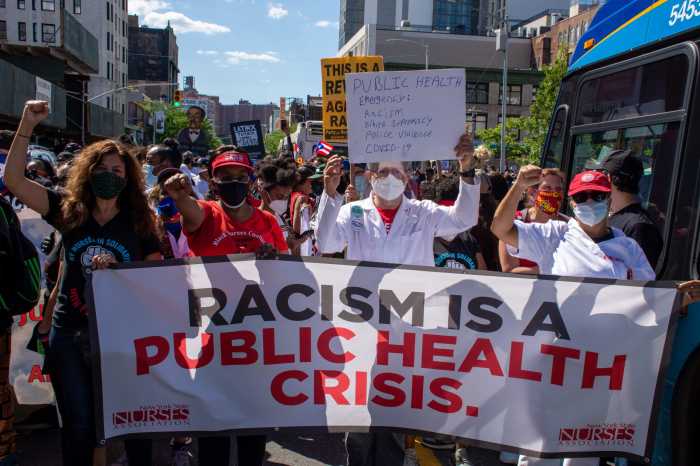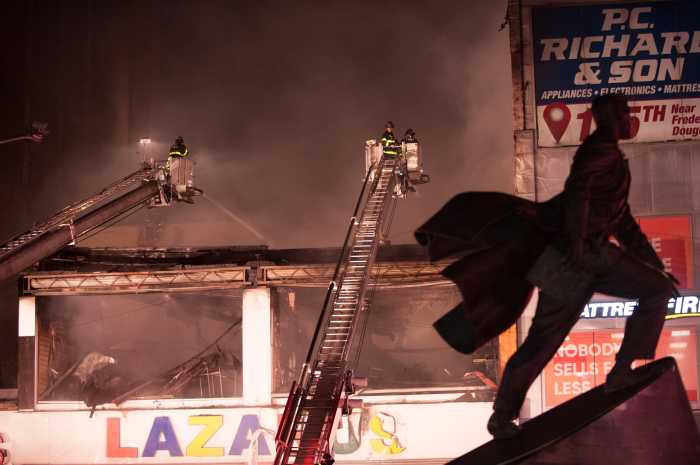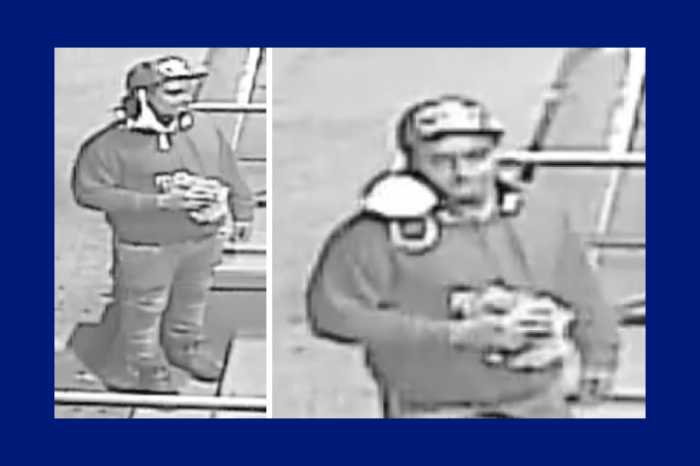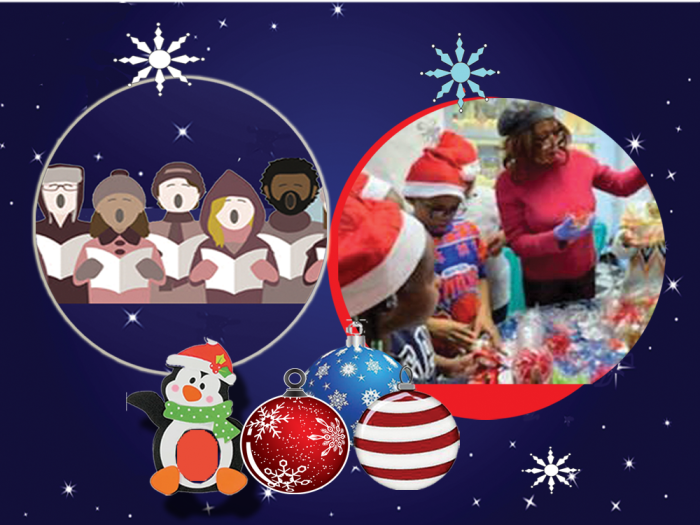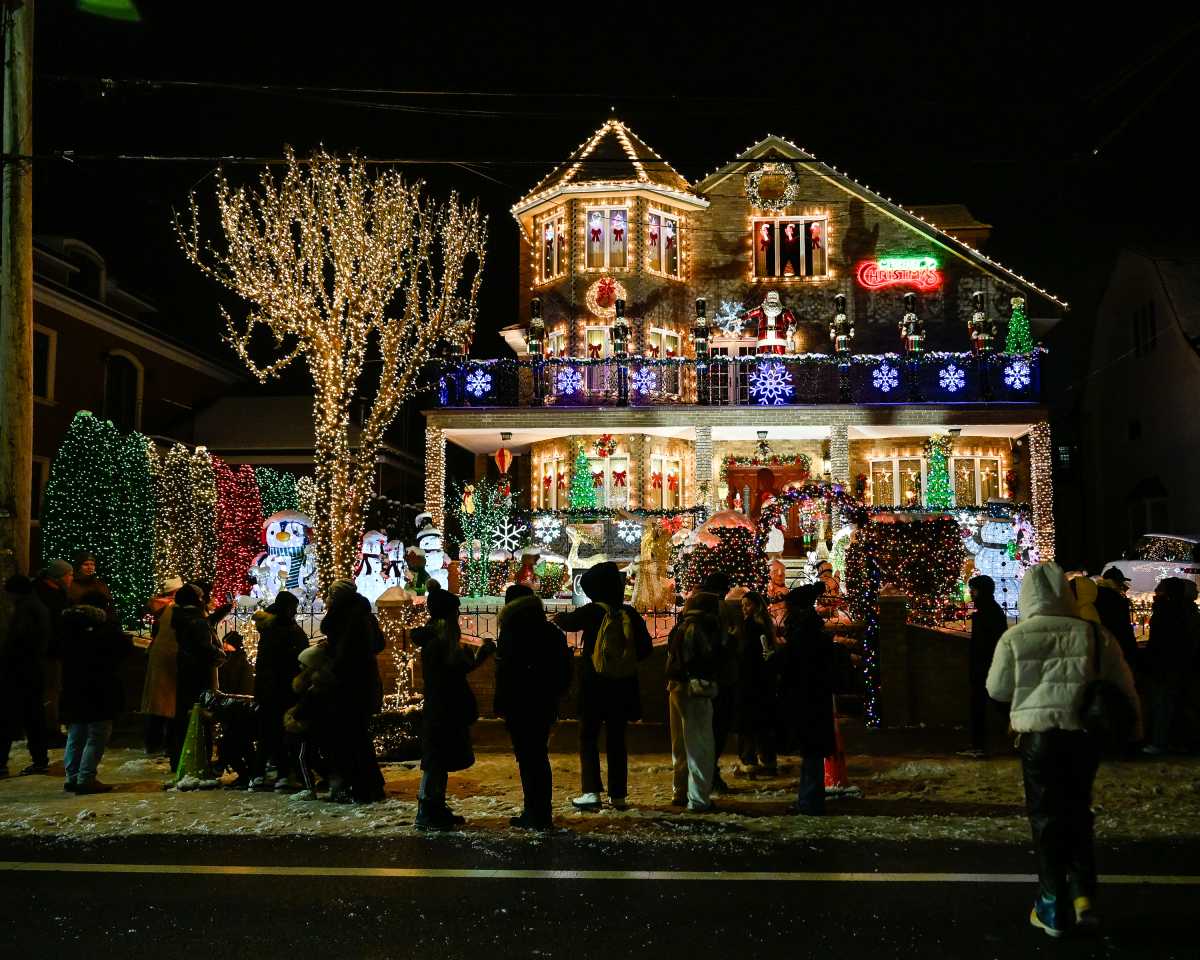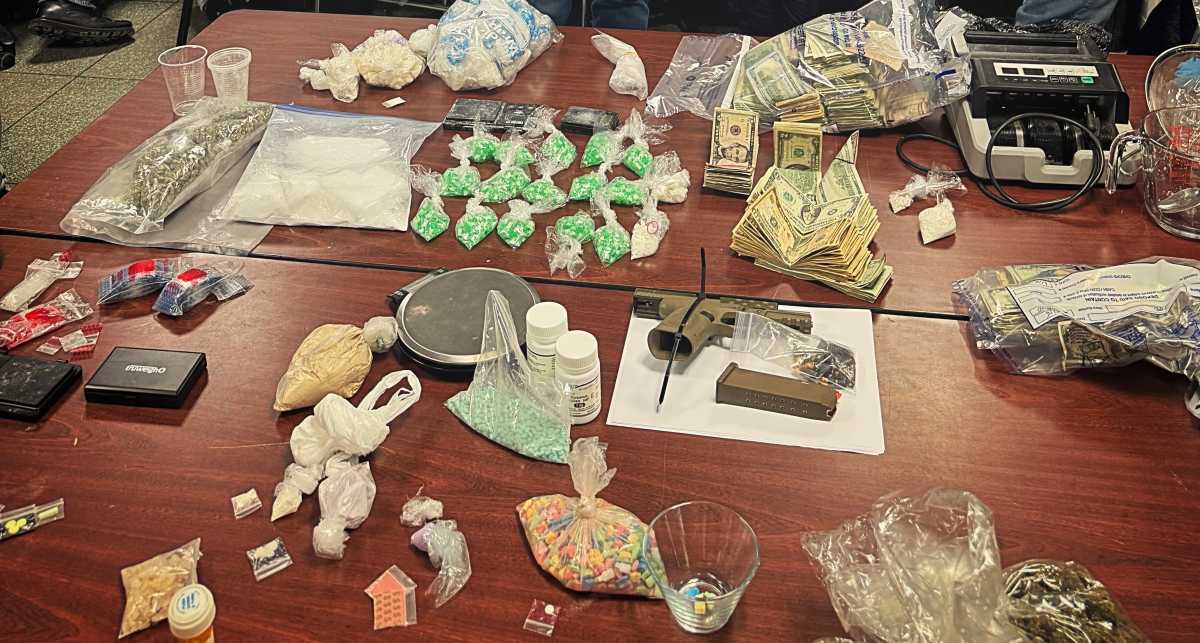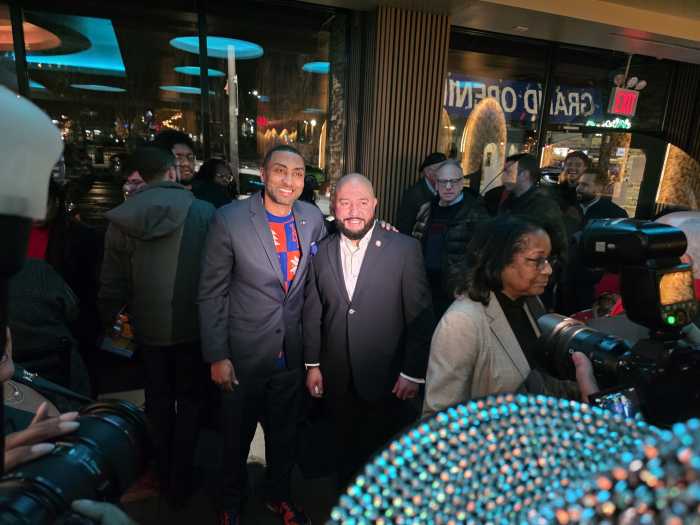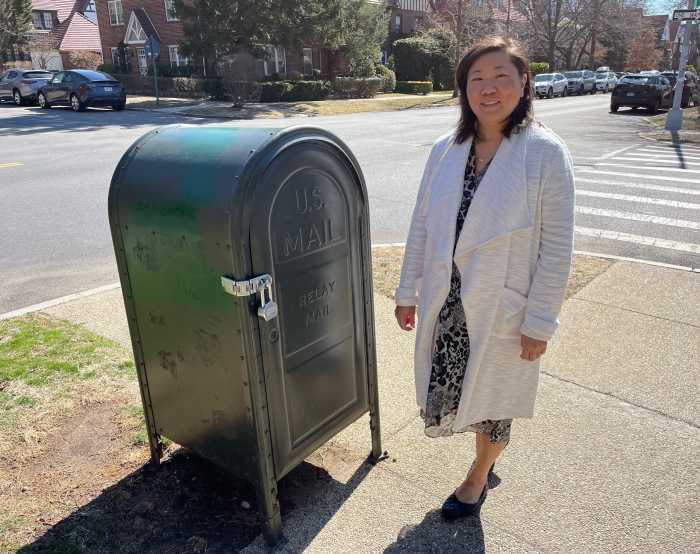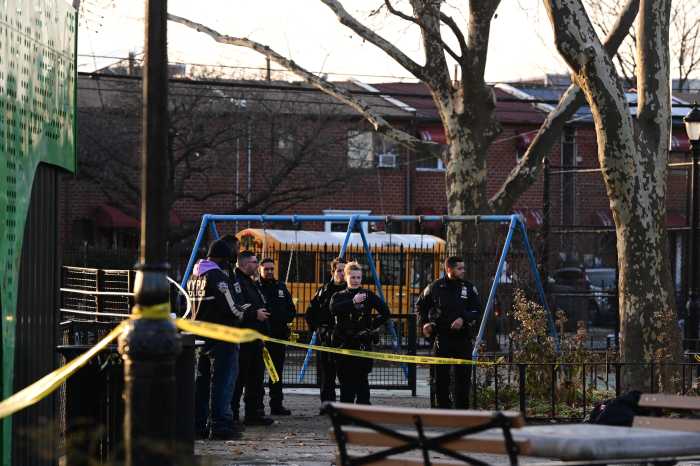A Harlem cafe with West African roots is working to rebuild after shutting down after just a few months of being open.
Mohammed Diallo and his brother Rahim came to the United States from Guinea as teenagers. After bouncing around for awhile, the two ultimately landed in New York City, but regardless of where they were, one thing remained true: there was a lack of African cuisine available in the United States.
“What I noticed was that there was absolutely no African food we were presented in any supermarket sales. There were these amazing supermarkets and I was discovering a lot of different products, but there was nothing from Africa,” said Diallo. “And one of the things that means the most, especially as a teenager, is the food. One of the things I missed the most from home was the food. It was something that I noticed was nonexistent and we have all these amazing drinks and food that most of the US has never heard of.”
Diallo and his brother decided to go into business together and started Ginjan Brothers in 2015. The name comes from a specific ginger drink that is special to Africa, a ginger-based drink that is mixed with lemon, vanilla, anise and pineapple that is not only delicious but has a number of health benefits.
“We started Ginjan Brothers in 2015 to bring traditional African food and beverages and solve the scarcity of African food. When we decided to start the business, there were all of these different things we could have done. We decided to go with food and beverage, but we realized the place where there’s the biggest gap and the easiest entry point was the drink side of things,” said Diallo. “One of our favorite drinks by far is this ginger drink we grew up drinking. We went on the hunt to find the best West African ginger drink, we found a couple here and there, but when we went back there were all these inconsistencies and no one could really tell us what the shelf life was on these products. And this is a very difficult product to make, everyone loves it but no one is really making it, so let’s start with this ginger drink, which is called Ginjan back home.”
The brothers spent hours upon hours bottling and selling their brew of Ginjan. Diallo says that the response to the drink was much more positive than they anticipated.
“At first we thought it would be this West African drink that would appeal to Africans and then expand to everyone else. But what we quickly realized was that there was a hunger in the US and the rest of the world to discover new products,” said Diallo. “We ended up going to Smorgasburg — we didn’t think they would accept us — and it was a huge hit. We set up this small little table, no crazy displays, just the bottles. Just the bare minimum, a couple of bottles of ginjan and a couple of sampling cups and we’d let people try it. It was a huge hit.”
In late 2019, the Ginjan Brothers opened their first brick-and-mortar experiential coffee shop on East 135th Street in Harlem. The shop sold the famous ginger drink, as well as a variety of hot and cold drinks and foods with traditional West African roots, plus fare from local Harlem artisans as well. Diallo says that the shop was an opportunity to bring in more revenue for their business.
“We had this amazing idea that despite not having money when we make it and make it a reality, all this money would come flooding in. So we did manage to grow and get locals to restaurants, we knew we could make something more experiential situation,” said Diallo. “In 2019, we opened our first experiential coffee shop in Harlem. 2019 is around the time we started hearing about COVID in China. So things went really well for a couple of months after we opened and then we had to shut down.”
Like several businesses in New York City, the Ginjan Cafe was hit hard as a result of the pandemic. The cafe had only been open for a few months before they had to shut down completely.
“We had taken all of our eggs and not necessarily put them in one basket but invested all of our savings in opening this location in Harlem and now all of the sudden we have to shut down. It was very scary,” said Diallo.
Diallo says that he and his brother closed up shop immediately, but then started to give back to the community through their ginger drink.
“We shut down like everyone else, we didn’t know what to do. We decided after a couple of weeks in to help,” said Diallo. “There were all of these amazing things to support our healthcare heroes, so we allowed customers to buy individual bottles to send to any nurse in the hospitals. We didn’t expect to get anything from it, it ended up being a huge success. People from our home essentially started buying it, buying ginger drinks for nurses across the US.”
Even though the shop was giving back to the healthcare heroes, Gunjan Cafe was struggling to stay afloat. The brothers had to negotiate their lease with their landlord and were applying for grants.
“We didn’t have any money. That’s when these grants started popping up. We applied to every single grant hoping we could stay alive,” said Diallo. “We started negotiating with our landlord and that’s when organizations like LISC NYC stepped in. We applied like everyone else, crossed our fingers and were lucky enough to be selected.”
The Ginjan Cafe was selected by LISC NYC to receive a $20,000 grant to help stay open amid the COVID-19 pandemic.
“The grants are there to help the businesses get out of hot water. We provide assistance with that fund that can help to look at strategy,” said Valerie White, executive director of LISC NYC. “A place like Ginjan Cafe is a cultural anchor to a neighborhood and provides a sense of belonging and they were also serving food the culture, music and events. That’s the type of business that we want to support because they bring a sense of belonging, culture, and anchor in these neighborhoods. We feel that way about all 284 businesses we provided funding for. It’s the type of business needed to keep the neighborhood vibrant and provide economic stability.”
“There’s hope out there. We tried to get PPP money, but there was no way to prove we were on payroll so the LISC grant came and was quite a lifesaver. We could sort of gather ourselves again and start planning ahead,” said Diallo.
Diallo says that when the cafe finally reopened, the Harlem community came out in droves to support them. Though he and his brother are very encouraged to see how the neighborhood was coming back, it’s going to take some time before things start to actually return to normal.
“When we closed, people were sad. But once we reopened, people in the community started coming in and giving us support and buying as much as they could. And that was very encouraging because when we first reopened, we were bringing in 10% of what we were prior to shutting down, which was essentially losing money for months before getting close to breaking even again,” said Diallo. “We just knew we had to survive. We are very optimistic people but the reality is what this pandemic has affected is going to last for a few more years. It’s not going to go away. A large portion of our customers came from people who work in the area who are now remote working.”
Despite his reservations, Diallo is incredibly optimistic for the future of Ginjan Cafe.
“We still have a long way to go, we’re about at 60% now, which is more than where we expected to be,” said Diallo. “We rolled out a limited food menu and will have a full food menu next month, and we’re going to start doing deliveries and carryout. I’m optimistic for the future, but I think it’s going to be another 2 years before we get back to this new normal.”
Ginjan Cafe is located at 85 East 125th Street in Harlem. For more information about Ginjan Cafe and the Ginjan Brothers, visit drinkginjan.com.
